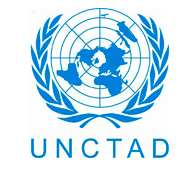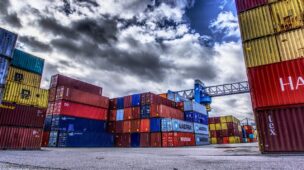Tempo de leitura: 5 minutos
The situation in Hong Kong is dire. Those responsible pretend its problems are not happening because they cannot face up to the reality of what they and their masters in Beijing have done. But ordinary Hongkongers and individual companies are not looking away. A massive brain drain is underway — more than 89,000 people, or 1.2% of Hong Kong’s population, have left over the last 12 months, and the U.K. government is expecting at least another 200,000 émigrés under its BNO visa scheme over the next five years.
Surveys show that a significant proportion of companies in Hong Kong are “waiting and seeing” with contingency plans at the ready. Many have already moved their data centers away from the prying eyes of the “national security” police.
Hong Kong’s strength is its financial services, and while Singapore is justifiably mooted as the alternative hub in Asia, it should not be the only one. While its internationalized corporate culture, common law system, and official use of English all hold it in good stead, it is one of the most censored countries in the world and, compared with Taiwan, socially backward. It also remains notoriously expensive and, for those with cosmopolitan tastes, rather dull.
Taiwan is ideally placed to be an alternative: it’s vibrant, safe, free, open, and a country people want to move to, not escape from. So why isn’t Taiwan seizing this chance to replace Hong Kong? Taiwan’s government, unfortunately, has been too passive in responding to its own perceived limitations — yet a solution now lies within reach.
For all its whimsical nostalgia, the reality is that Hong Kong has never been anything more than a special economic zone (SEZ) of China since 1997. Despite Chinese SEZs grabbing headlines in recent years, Taiwan was on the SEZ scene long before.
In fact, Taiwan became a pioneer in East Asian economic zones by first opening an Export Processing Zone (EPZ) in Kaohsiung in 1966, over a decade before Shenzhen became China’s first SEZ. So why not tap into this legacy and make a new physical (or even virtual) “Taiwan SEZ” now? This TSEZ could have its own laws, financial regulatory system, and governance model.
Taiwan lags behind Singapore in some key ways: its way of doing business and legal system are not as familiar to international companies, while talent and professional services are in shorter supply. Not to mention the thorny issue of English proficiency. The challenges can be overcome, though.
The best way to get a “TSEZ” up and running would be to set up a common law system for the zone while keeping Taiwan’s broader civil law system — an exact parallel of Hong Kong’s legal framework within China. That would enable Hong Kong’s laws and financial regulatory framework to be copied lock, stock, and barrel — the best way of ensuring continuity for companies that want to relocate here.
The beauty of the common law system is that legal expertise for it is available internationally, and so Taiwan could tap into that existing pool of talent too. The lack of local talent is perhaps the easiest problem to fix — Taiwan regularly tops out as one of the best places in the world for people to live in. By building a competitive financial hub, it could soon be a top destination for work too. It’s also cheaper than both Hong Kong and Singapore, and there is no stultifying political censorship here. Talent wants out of Hong Kong and Taiwan should give it a home.
As for English, what better way of demonstrating commitment to President Tsai Ing-wen’s Bilingual 2030 Country Project than by making it a practical reality with English as the official language of the TSEZ? A TSEZ aligns perfectly with the government’s strategic aims to become a bilingual country; with a bit of political will, it can happen, and quickly too.
As with any big audacious goal like this, there are risks. One of the biggest is to avoid cannibalizing Taiwan’s existing financial services sector. That could be done by preventing the country’s residents from using the TSEZ’s services or products. If the idea of relocating to the new TSEZ is perceived by companies in Hong Kong as being too risky, the TSEZ could start by offering comprehensive outsourcing services so they could relocate bit by bit. Once one company relocates, others will follow.
Of course, a successful TSEZ might annoy China. Yet if enough Chinese park their money here, and enough global firms invest here, it would become the finance industry’s equivalent of TSMC — a geostrategic asset that helps ensure Taiwan’s survival.
Even the process of just setting up a TSEZ would massively boost the financial services sector and help diversify Taiwan’s economy. Furthermore, it would buttress the country’s position within the global system and would get decision-makers chatting about Taiwan in boardrooms and government offices around the world.
Lee Faulkner is a Fellow of the Institute and Faculty of Actuaries, the UK’s actuarial body, and has more than 30 years’ experience in the world of financial services in Asia, Europe, and Latin America. He lived in Hong Kong for 10 years and witnessed its rapid decline. Lee is a Taiwan Gold Card holder and is keen to do what he can to help Taiwan develop in the sector he knows best.






Os comentários foram encerrados, mas trackbacks e pingbacks estão abertos.